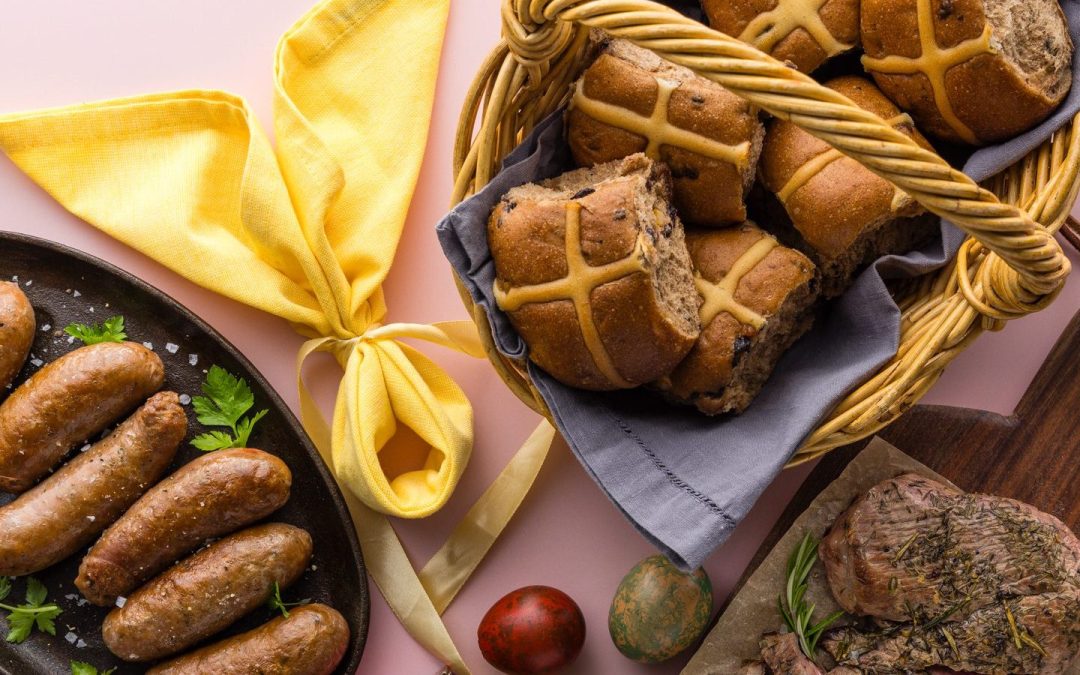
You may have heard your friends talking about a ‘high protein diet’, or if you attend a gym, we’re sure you’ve heard people discuss their daily protein intakes.
But what actually is protein?
Protein is a macronutrient and can come from both animal sources and plant-based sources. Protein is made up of amino acids – also referred to as the ‘building blocks’ for protein. There are 20 amino acids in total, and nine of these are considered essential – meaning it’s essential we get them from our diet. This is because our body can make the other 11, but not the 9 essential ones. Some examples of essential amino acids are leucine, tryptophan, and lysine.
If a food contains all nine of the essential amino acids it is considered a ‘complete’ protein e.g. quinoa or eggs. Most animal proteins are ‘complete’ proteins; however, some plant foods do lack certain essential amino acids. The great news is, you can make up complete proteins by combining plant-based foods! A common example is beans and rice, or wholegrain toast with nut butter (e.g. a whole grain and a legume or nut).
Why is protein important?
Protein makes up our muscle mass! It also contributes to muscle repair and growth, bone, skin and blood formation as well as having other important functions within our body such as satiety, maintaining our immune system, and appetite regulation (Harvard Health). We recommend looking to a variety of plant foods for your protein source, as well as meat and seafood. A variety of foods is key as each will contribute little bits of protein, which all add up!
How much do you need?
The generally accepted level of protein required is 0.8g protein per kilogram of body weight for your daily protein intake. This means for a 70kg female you would be looking at 56g protein per day, for a 90kg male this would be 72g.
A general guideline is to look for 5-10g per snack and 15-30g per serve in a meal.
To give you an idea of what this could look like, our Parmesan Scrambled Eggs uses x2 eggs, 100g baby spinach and 2Tbsp Parmesan cheese, giving you ~23.6g protein!
Too much protein?
Just like anything in life, you can consume too much protein! Consuming too much protein means your body will lose the excess amino acids through your urine and can also put unnecessary pressure on your organs (such as your liver and kidneys), as they have to work harder to process the excess.

Top Tip:
Spread your protein sources throughout the day – you want to be having it often (e.g. at each mealtime), rather than a big intake all at once.
Some easy high protein afternoon snack ideas:
· ½ cup unsweetened Greek yoghurt with 1 Tbsp nut butter
· ½ cup steamed edamame beans or peas
· A boiled egg
· 1 can of tuna with wholegrain crackers
· ½ cup crispy roasted chickpeas
· 2 Tbsp hummus with veggie sticks
Or try these from our blog:
| If you are eating a range of foods and have a balanced diet, then you should be quite easily able to reach your daily protein requirements! 2 large eggs = 14g 30g or ~3Tbsp hemp seeds = 10g 150g yoghurt = 8g 2 tbsp peanut butter = 8g Small can (95g) tuna = 18g 30g or ~3Tbsp pumpkin seeds = 7g 15g or ~1½Tbsp chia seeds = 3g 1 cup soy milk = 10.5g 1 cup oat milk = 2.5g 30g almonds = 6g 125g (roughly palm size) fish, chicken, meat = ~35g ½ 400g can chickpeas = 10g ½ 400g can lentils = 14g 100g peas = 5.5g 45g oats = 6g 2 pieces Very Thin Vogel’s toast = 5.6g 20g or ~2Tbsp hummus = 3g *Approximate figures which may vary slightly dependent on serving size and brand. |
Resources
1. NZ Nutrition Foundation
2. Ministry of Health NZ
3. https://www.health.harvard.edu/nutrition/when-it-comes-to-protein-how-much-is-too-much


